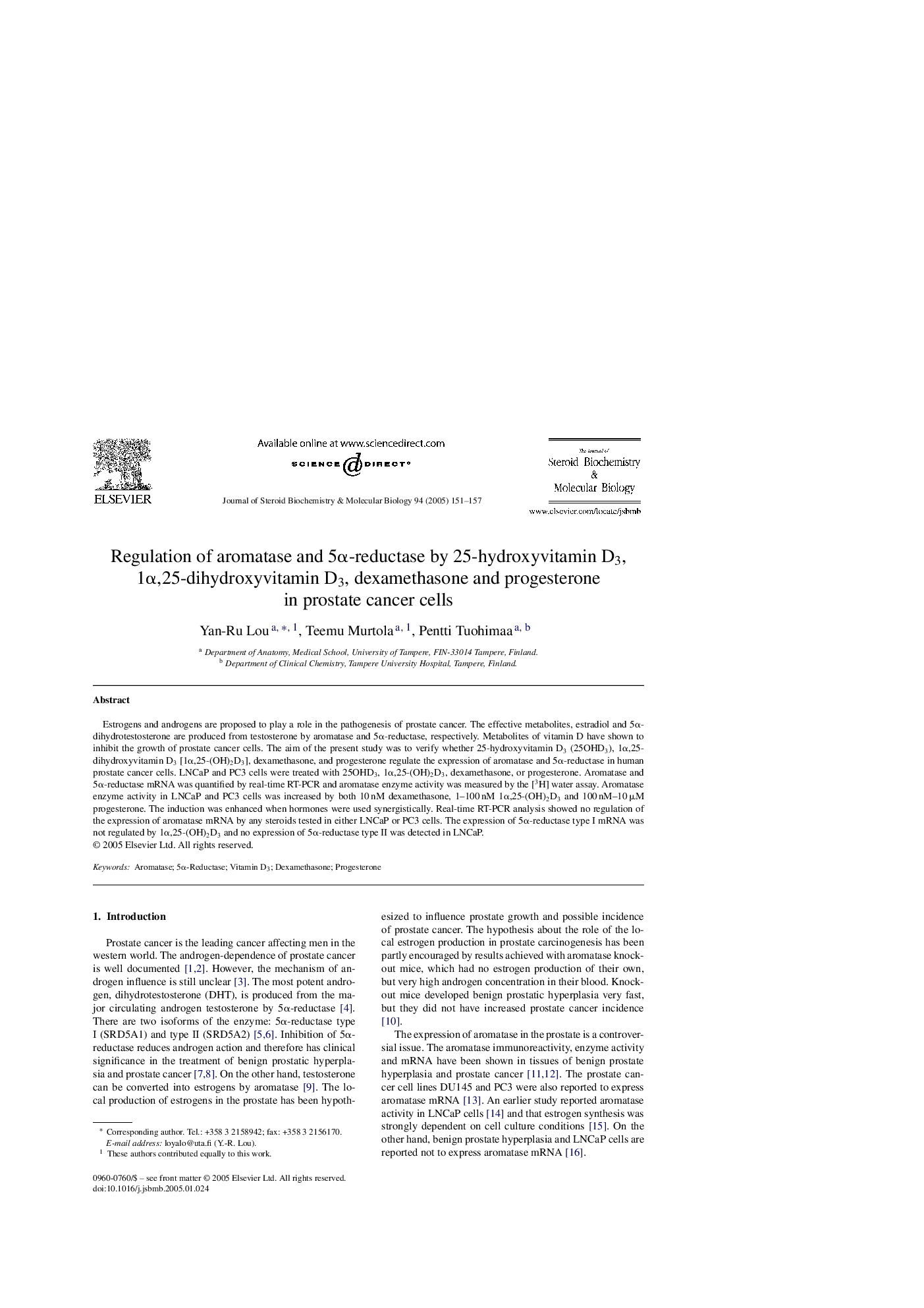| Article ID | Journal | Published Year | Pages | File Type |
|---|---|---|---|---|
| 9892188 | The Journal of Steroid Biochemistry and Molecular Biology | 2005 | 7 Pages |
Abstract
Estrogens and androgens are proposed to play a role in the pathogenesis of prostate cancer. The effective metabolites, estradiol and 5α-dihydrotestosterone are produced from testosterone by aromatase and 5α-reductase, respectively. Metabolites of vitamin D have shown to inhibit the growth of prostate cancer cells. The aim of the present study was to verify whether 25-hydroxyvitamin D3 (25OHD3), 1α,25-dihydroxyvitamin D3 [1α,25-(OH)2D3], dexamethasone, and progesterone regulate the expression of aromatase and 5α-reductase in human prostate cancer cells. LNCaP and PC3 cells were treated with 25OHD3, 1α,25-(OH)2D3, dexamethasone, or progesterone. Aromatase and 5α-reductase mRNA was quantified by real-time RT-PCR and aromatase enzyme activity was measured by the [3H] water assay. Aromatase enzyme activity in LNCaP and PC3 cells was increased by both 10 nM dexamethasone, 1-100 nM 1α,25-(OH)2D3 and 100 nM-10 μM progesterone. The induction was enhanced when hormones were used synergistically. Real-time RT-PCR analysis showed no regulation of the expression of aromatase mRNA by any steroids tested in either LNCaP or PC3 cells. The expression of 5α-reductase type I mRNA was not regulated by 1α,25-(OH)2D3 and no expression of 5α-reductase type II was detected in LNCaP.
Related Topics
Life Sciences
Biochemistry, Genetics and Molecular Biology
Biochemistry
Authors
Yan-Ru Lou, Teemu Murtola, Pentti Tuohimaa,
